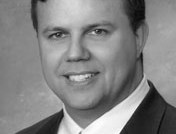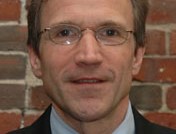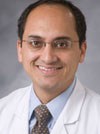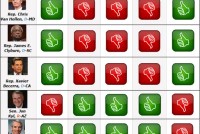Latest KFF Health News Stories
Q&A: Can I Request An Autopsy For A Loved One?
Michelle Andrews, KHN’s “Insuring Your Health” columnist, answers a question from a reader on what she can do after a doctor refused to authorize an autopsy for her mother-in-law.
Seeking To Save Money, Calif. Ending Adult Day Health Care Program
The state has said its decision to eliminate adult day health care services as a Medi-Cal benefit — essentially shuttering ADHC centers and moving beneficiaries into managed care — is a cost-saving move. But there are questions about how much money it actually will save.
Massachusetts Unions Shape Compromise For State’s Municipal Health Insurance Law
A coaltion of Massachusetts public employee unions recognized that municipal health care costs were a problem and engaged with other stakeholders in the effort to develop a solution. In the end, nobody got they wanted and that’s what a genuine compromise looks like.
These local jurisdictions, in the face of serious budget constraints, have repeatedly pushed for legal relief that would enable them to decrease the burden of public employees’ and retirees’ health benefit costs. Meanwhile, public employee unions have battled to protect what they believe their members have earned through their collective bargaining rights. In this state-policy drama, key players managed to come to a compromise that neither side loves, but both view as a solution.
Reasonable Reform Trumps In Massachusetts
Earlier this summer, Massachusetts Gov. Deval Patrick signed a new law reforming the way that cities and towns design health insurance plans for their employees. As local governments across the country continue to confront the harsh political and fiscal issues of spiraling employee and retiree health costs, the story of how this law came to be is worth examining.
SSI Program For ADHD, Other Disabled Kids Under Scrutiny
The SSI program for low-income disabled children is rapidly expanding, with the biggest increase among kids with mental, behavioral and learning disorders, including ADHD, speech delays, autism, and bipolar disorder, sparking criticism in Congress.
Readers Face Multiple Dilemmas About Insurance Coverage, Costs
“Insuring Your Health” columnist Michelle Andrews answers questions from readers, including someone wondering about coverage if you’ve been drinking, talking with your insurer about a family member’s bill and preventive colonscopies.
As Hospitals Push ERs, States’ Medicaid Budgets Pressured
With their budgets squeezed, states are trying to reduce unnecessary ER visits by patients in Medicaid. But officials complain that their efforts are sometimes hampered by hospitals’ aggressive marketing of ERs to increase admissions and profits.
Workers Squeezed As Employers Pass Along High Costs Of Specialty Drugs
Employers struggling to keep down insurance costs are increasingly requiring workers to pay a percentage of high-cost drugs rather than a modest co-pay.
Housing Bust Derails Some Seniors’ Assisted-Living Care
With the real estate market depressed, thousands of seniors are unable to move because they can’t sell their homes.
Q&A: How Do Ambulance Fees Vary Around The United States?
Michelle Andrews, KHN’s “Insuring Your Health” columnist, answers a question from a reader about how insurer and provider fees from ambulance service vary around the nation.
Insurance Experts Hope New Rules Will ‘Empower Consumers With Information’
Mila Kofman and Sabrina Corlette helped to develop the forms that HHS unveiled on Wednesday. The idea is to give consumers simple, clear and standardized information before they buy coverage – akin to nutrition labels.
How The Merger Of Two Health Care Giants May Affect Your Wallet
Express Scripts and Medco Health Services manage the prescription drug coverage that health insurance companies offer to large organizations. The two firms say their plans for a $29 billion merger will help control health care costs for consumers. But will bigger really be better?
New Standardized Insurance Forms Could Make Buying Easier
The head-spinning jargon and fine print common in many health benefit materials could disappear next spring as insurers and employers adopt plain-English models required by the government.
Hospitals Promoting Bargain CT Scans For Smokers
Landmark study shows annual scans reduce lung cancer deaths by 20 percent, but expert groups are not yet recommending such discounted testing because of concerns over complications and overall health costs.
A Need For Health Care Reform: Cancer Care Costs And The Patient Perspective
The health reform discussion has been focusing on the systemic impact of health care costs, but somewhere in the bar graphs detailing trillions of dollars in projected spending, the daily experience of the cancer patient has been lost.
Research shows they daily experience of cancer patients often includes a heavy financial burden that impacts both their quality of life and satisfaction with care. Meanwhile, other data reflects the high-stakes position of oncologists, who often are the midpoint between cancer therapies and their costs.
Oncologists In The Middle: Cancer Therapies And Cancer Costs
Oncologists, trained to consider the clinical implications of their decisions, are unavoidably placed in the middle of an economic predicament. To what extent should economic considerations be a factor in prescribing decisions? In the world of medicine, this dilemma is not peculiar to cancer, but with no other disease are the stakes as frequently or as starkly presented.
Deficit ‘Super Committee’: Sharks vs. Jets?
The Fiscal Times outlines who’s on the panel, where they stand on the issues, and the likelihood of an agreement.
FAQ: ‘Super Committee’ Could Have Big Impact On Medicare, Medicaid Spending
A guide to how the congressional “super” committee’s deliberations could influence Medicare and Medicaid.




















